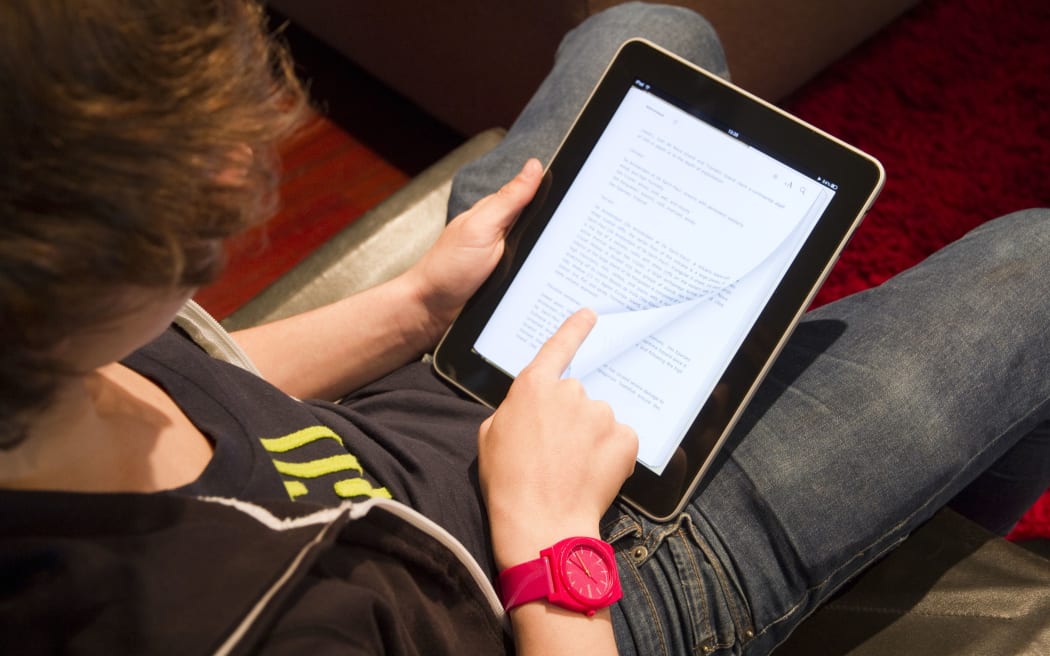Investing heavily in school computers and classroom technology does not improve pupils' performance, a global study from the Organisation for Economic Co-operation and Development (OECD) shows.

A teenager reads a textbook using a digital tablet. Photo: AFP
The think tank said frequent use of computers in schools was more likely to be associated with lower results.
OECD education director Andreas Schleicher said school technology had raised "too many false hopes".
Tom Bennett, the government's expert on pupil behaviour, said teachers had been "dazzled" by school computers.
The report from the OECD examines the impact of school technology on international test results, such as the Pisa tests taken in more than 70 countries and tests measuring digital skills.
It said education systems which had invested heavily in information and communications technology had seen "no noticeable improvement" in Pisa test results for reading, mathematics or science.
"If you look at the best-performing education systems, such as those in East Asia, they've been very cautious about using technology in their classrooms," Mr Schleicher said.
"Those students who use tablets and computers very often tend to do worse than those who use them moderately."
Annual global spending on educational technology in schools has been valued at £17.5 billion, by technology analysts Gartner. In Britain, the spending on technology in schools is £900 million.
The British Educational Suppliers Association said schools had £619m in budgets for Information and Communication Technology, with £95m spent on software and digital content.
But Mr Schleicher said the "impact on student performance is mixed at best".
- Students who use computers very frequently at school get worse results
- Students who use computers moderately at school, such as once or twice a week, have "somewhat better learning outcomes" than students who use computers rarely
- The results show "no appreciable improvements" in reading, mathematics or science in the countries that had invested heavily in information technology
- High achieving school systems such as South Korea and Shanghai in China have lower levels of computer use in school
- Singapore, with only a moderate use of technology in school, is top for digital skills
The report says:
- BBC

